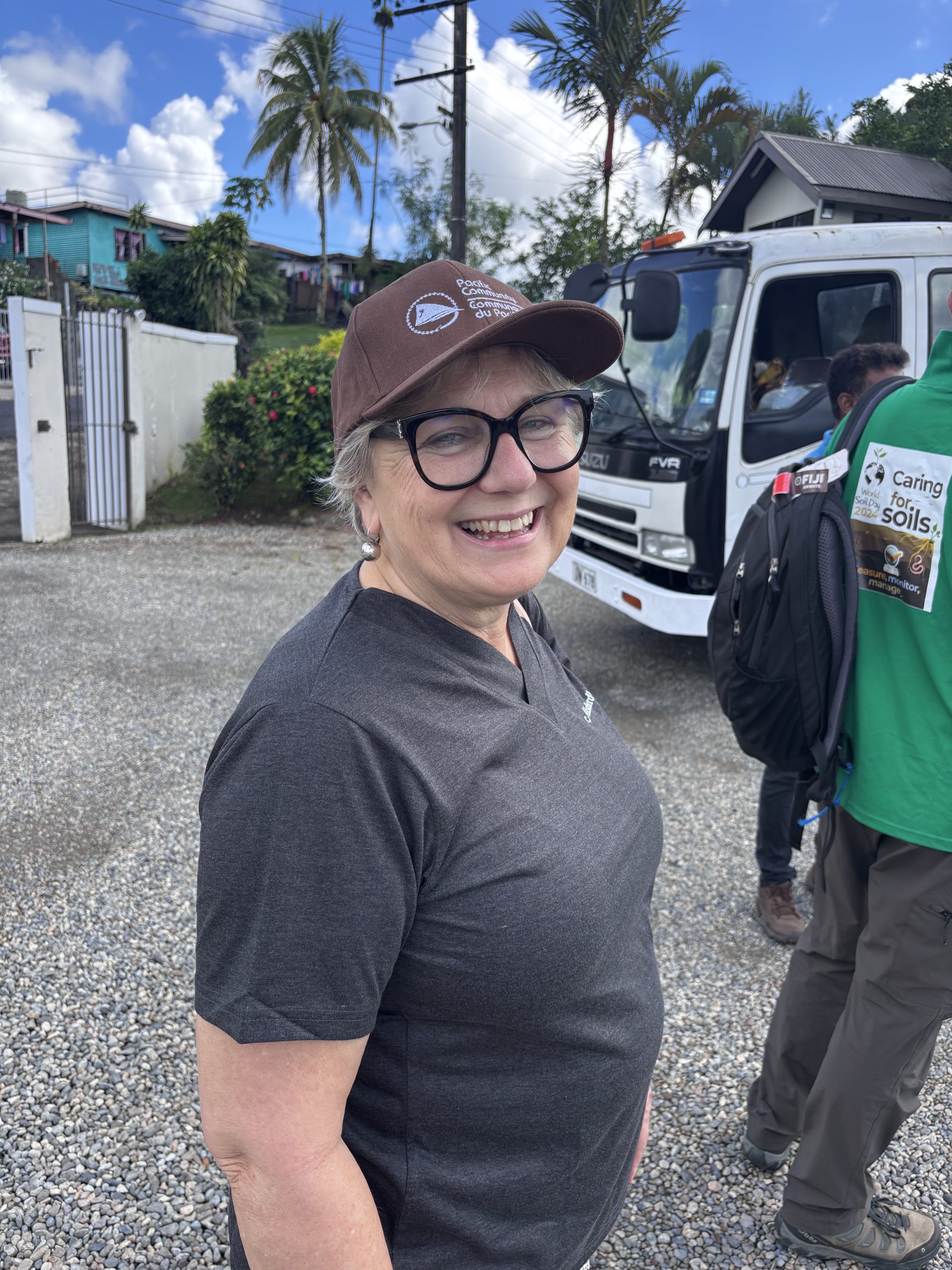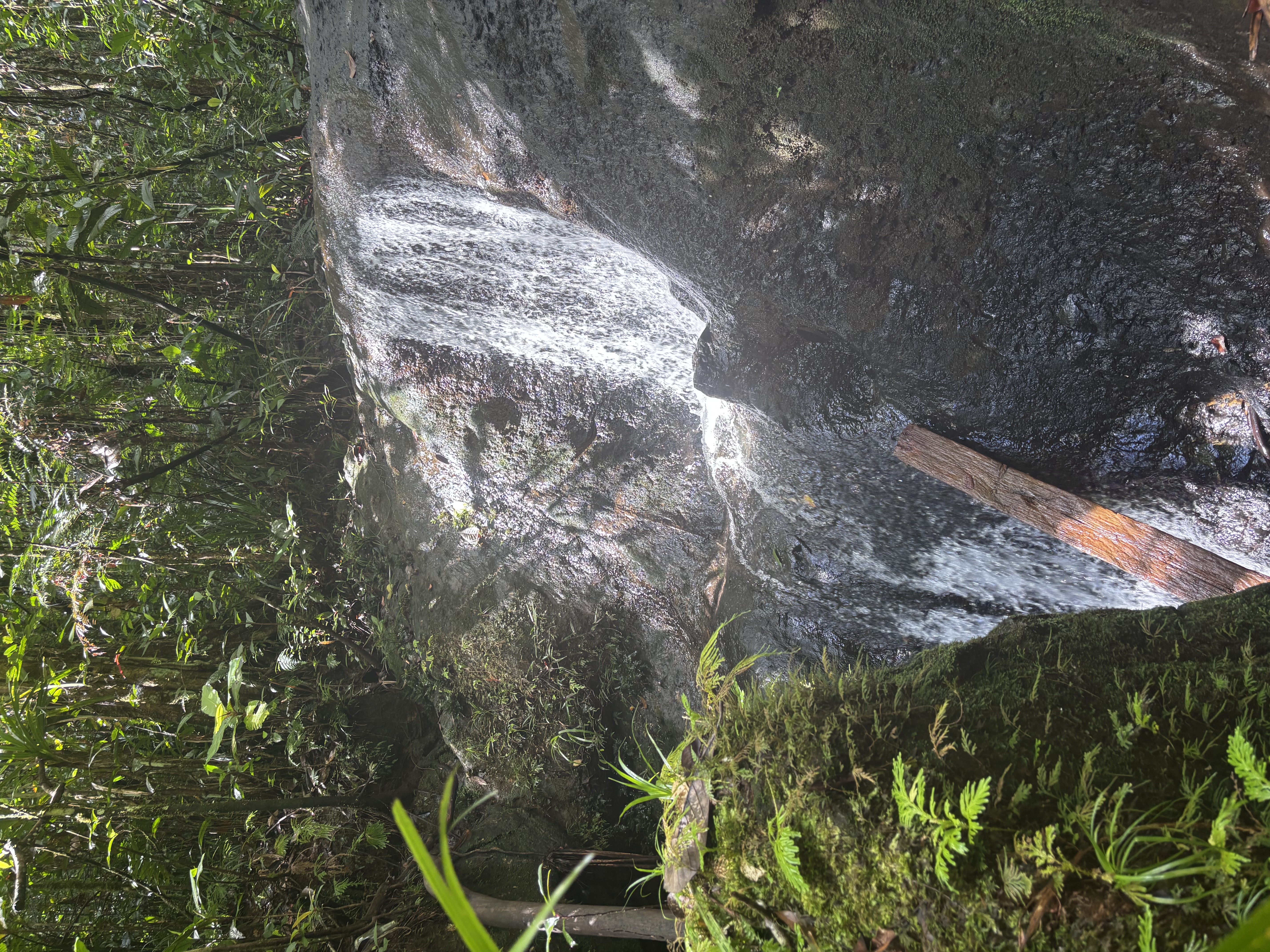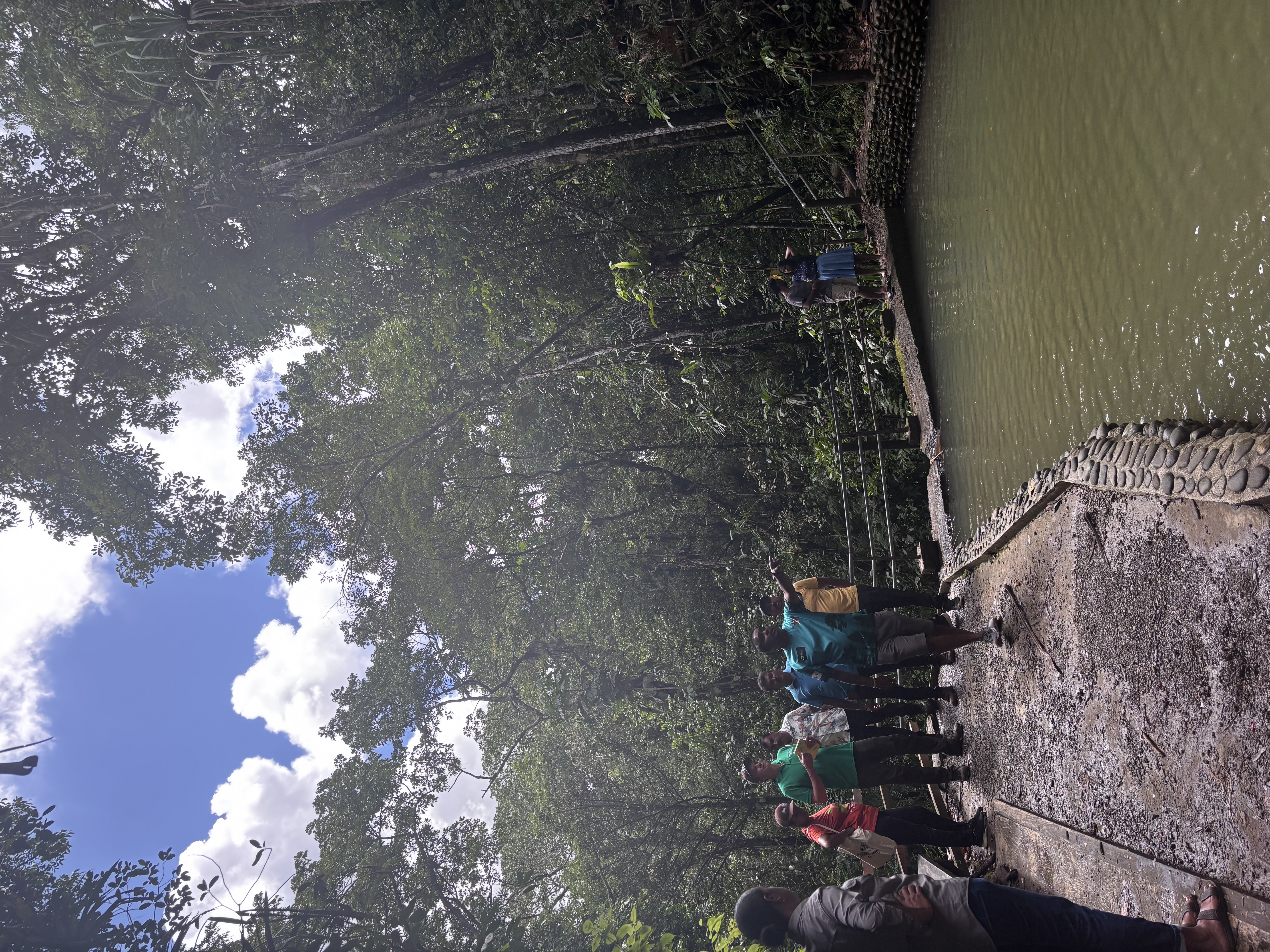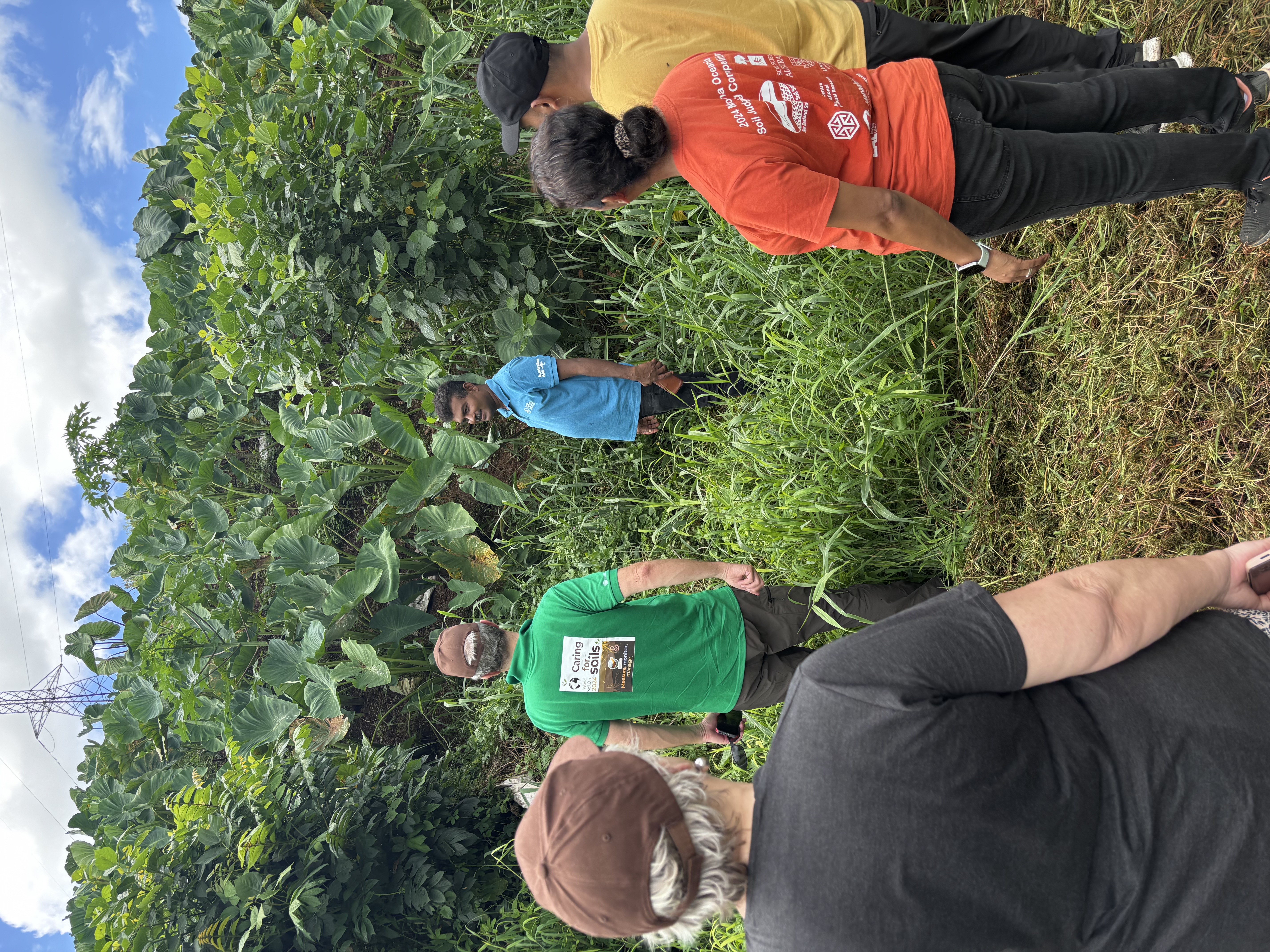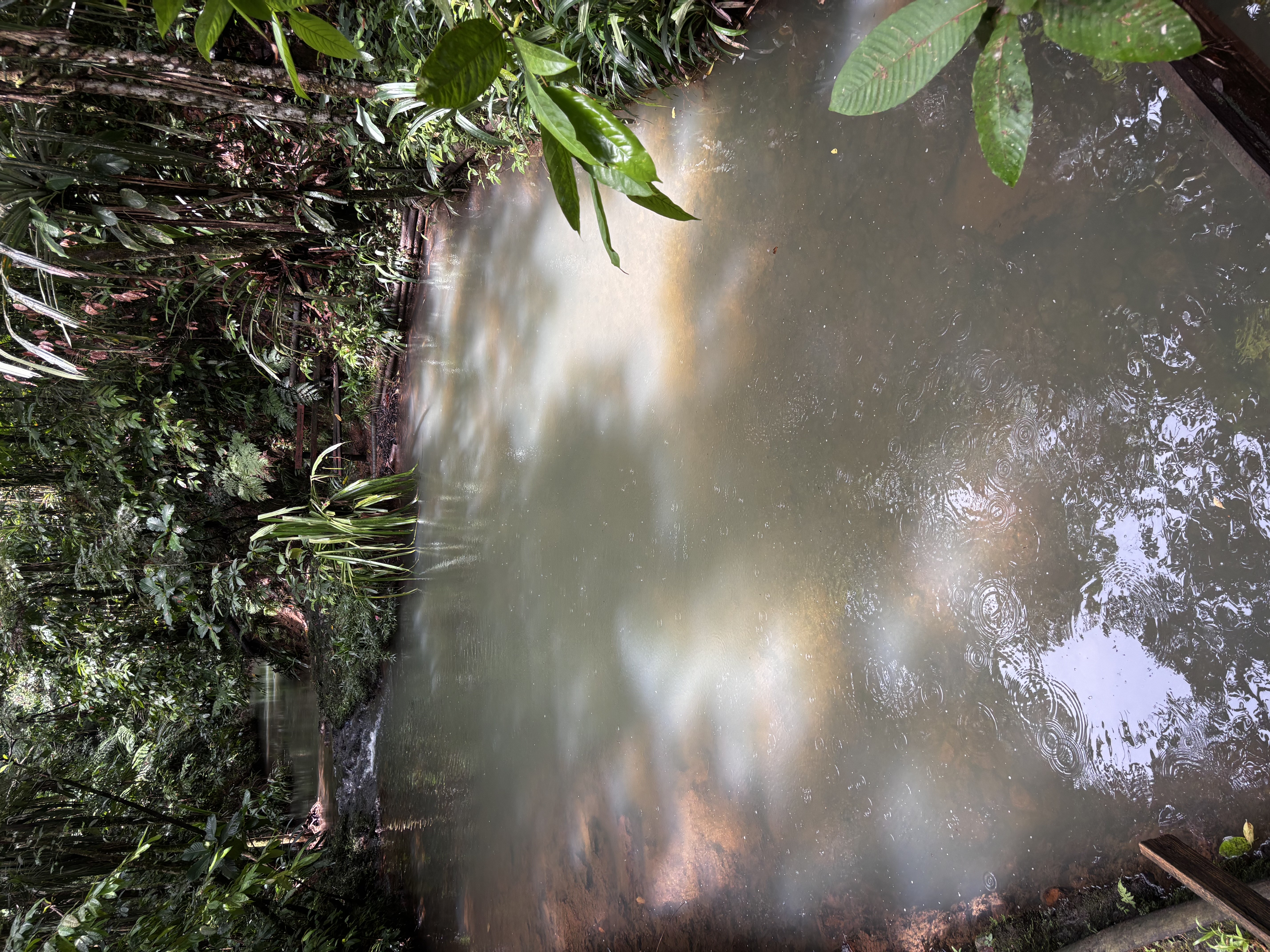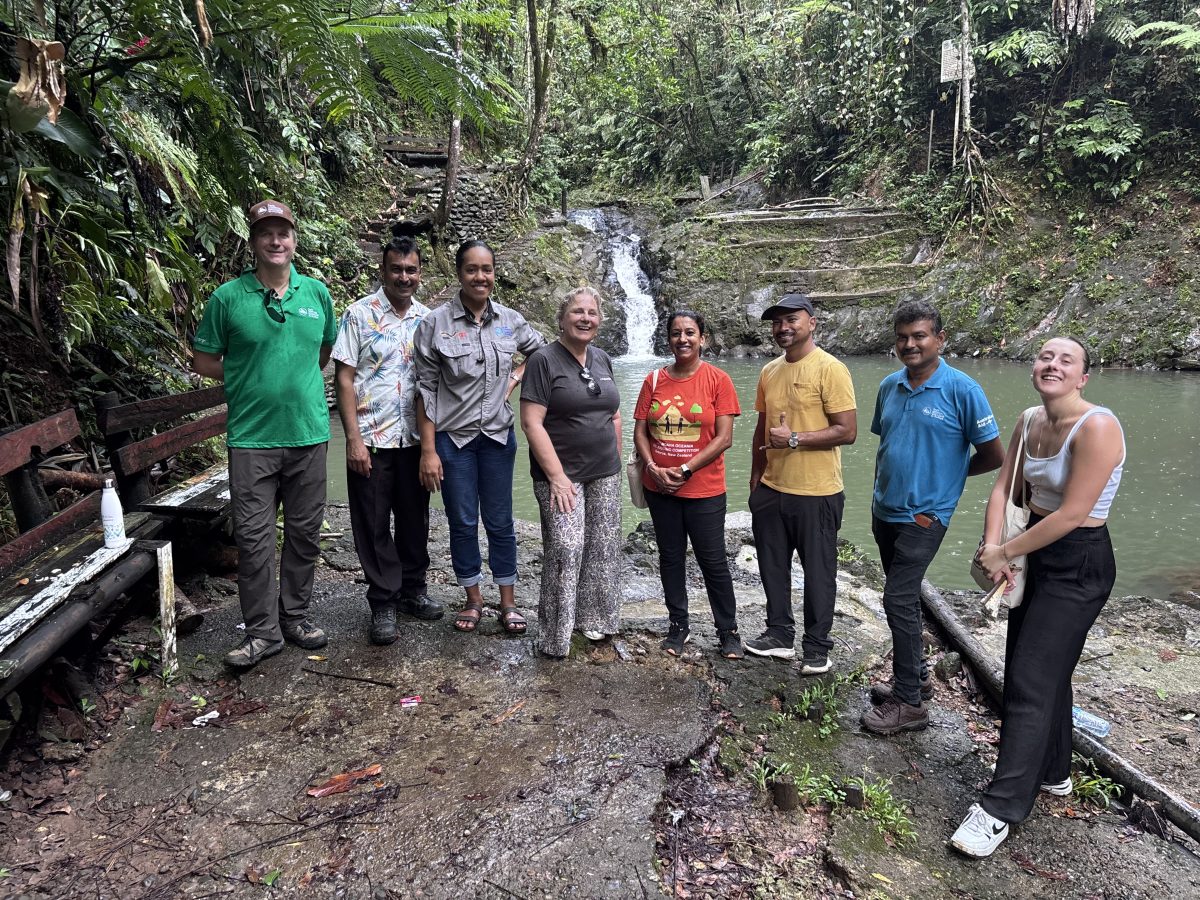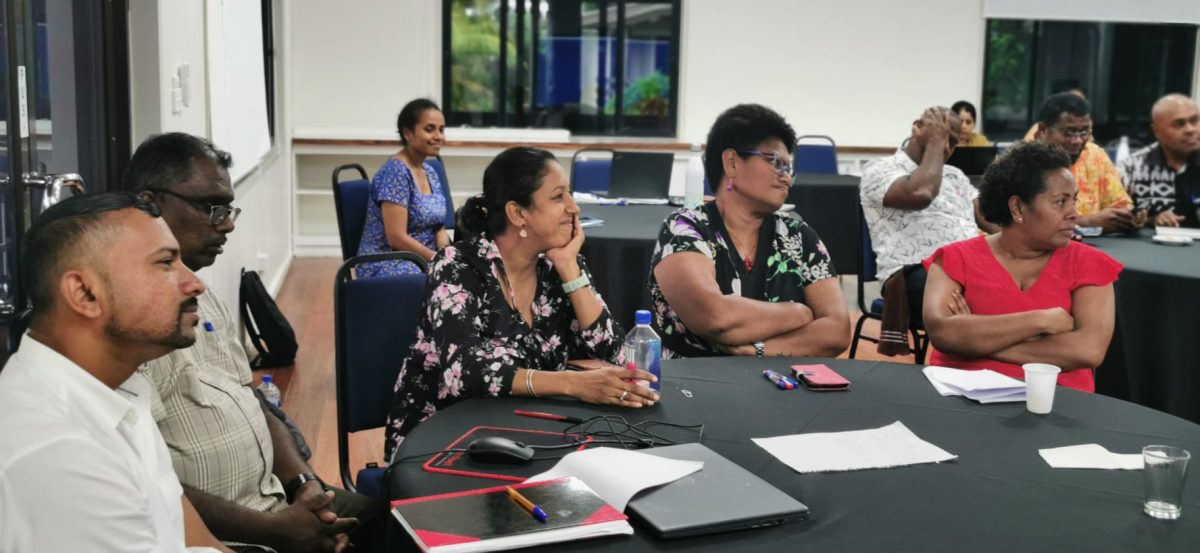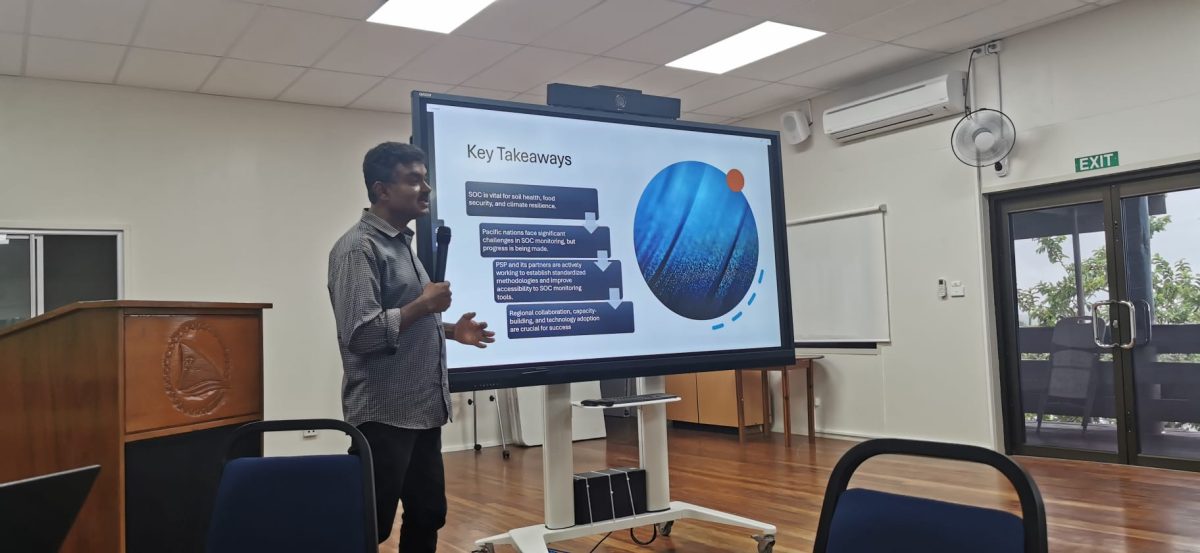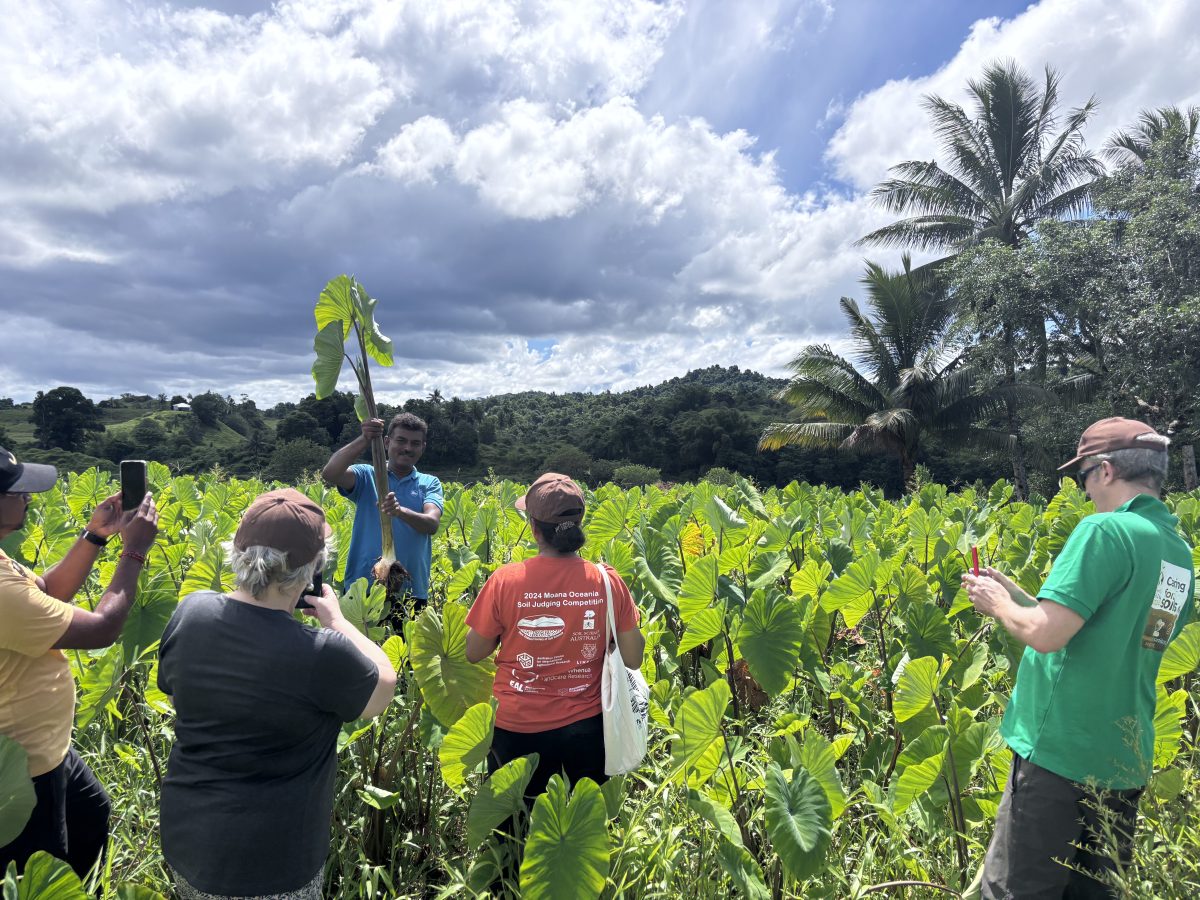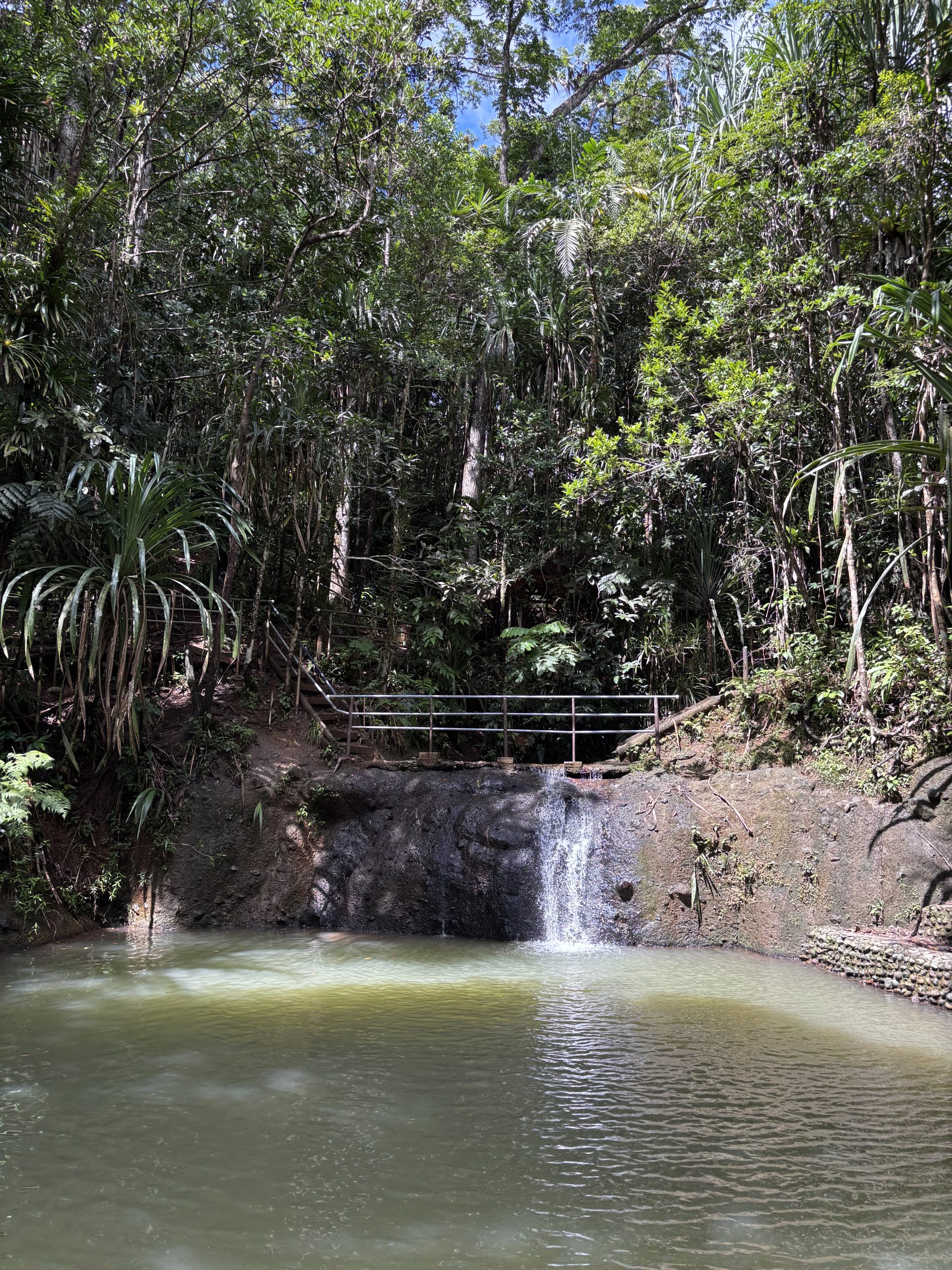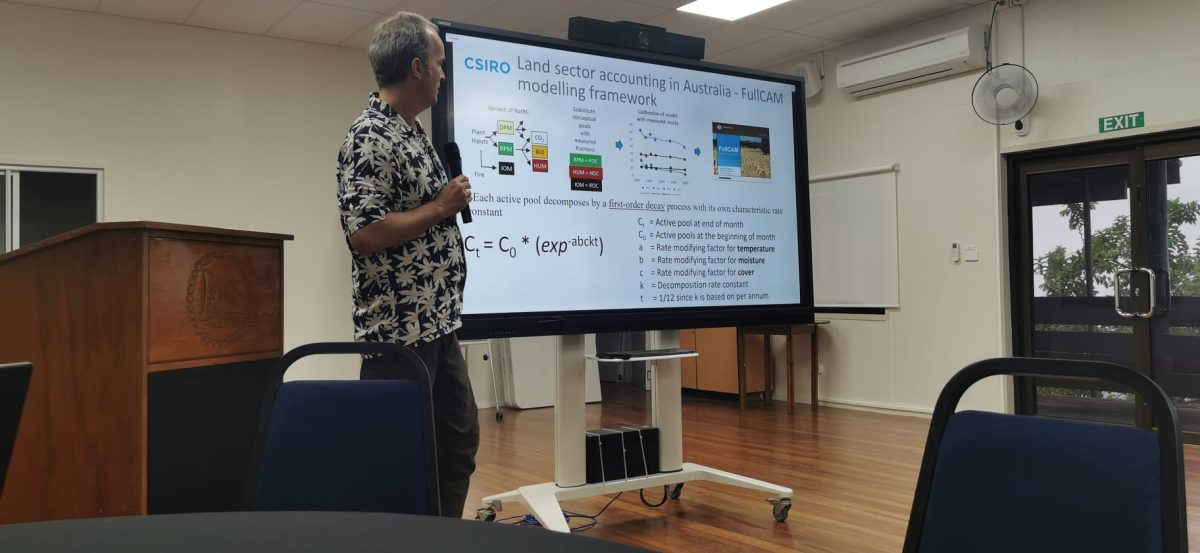Fiji hosts soil carbon workshop
Last week of March, the Soil Carbon International Research Consortium (IRC) concluded a workshop in Fiji on Monitoring, Reporting & Verification (MRV) approaches.
The workshop brought together scientists, farmers, and policymakers to advance sustainable agriculture in the Pacific, improve farming practices, and enhance soil carbon management in the region.
‘The workshop was a crucial step in aligning Pacific-wide efforts for sustainable agriculture,‘ said Suzanne Reynders, Coordinator of the Soil Carbon IRC and ORCaSa European project.
Hosted in collaboration with the Fiji Ministry of Agriculture and Waterways, CSIRO (Soil Carbon IRC regional ambassador), and the Pacific Community (SPC), the workshop featured a hands-on visit to a local farm run by expert taro grower Mr. Beni.
There, the team observed field trials testing organic manure in combination with synthetic fertiliser—an approach showing early promise for improving both crop yield and soil health.
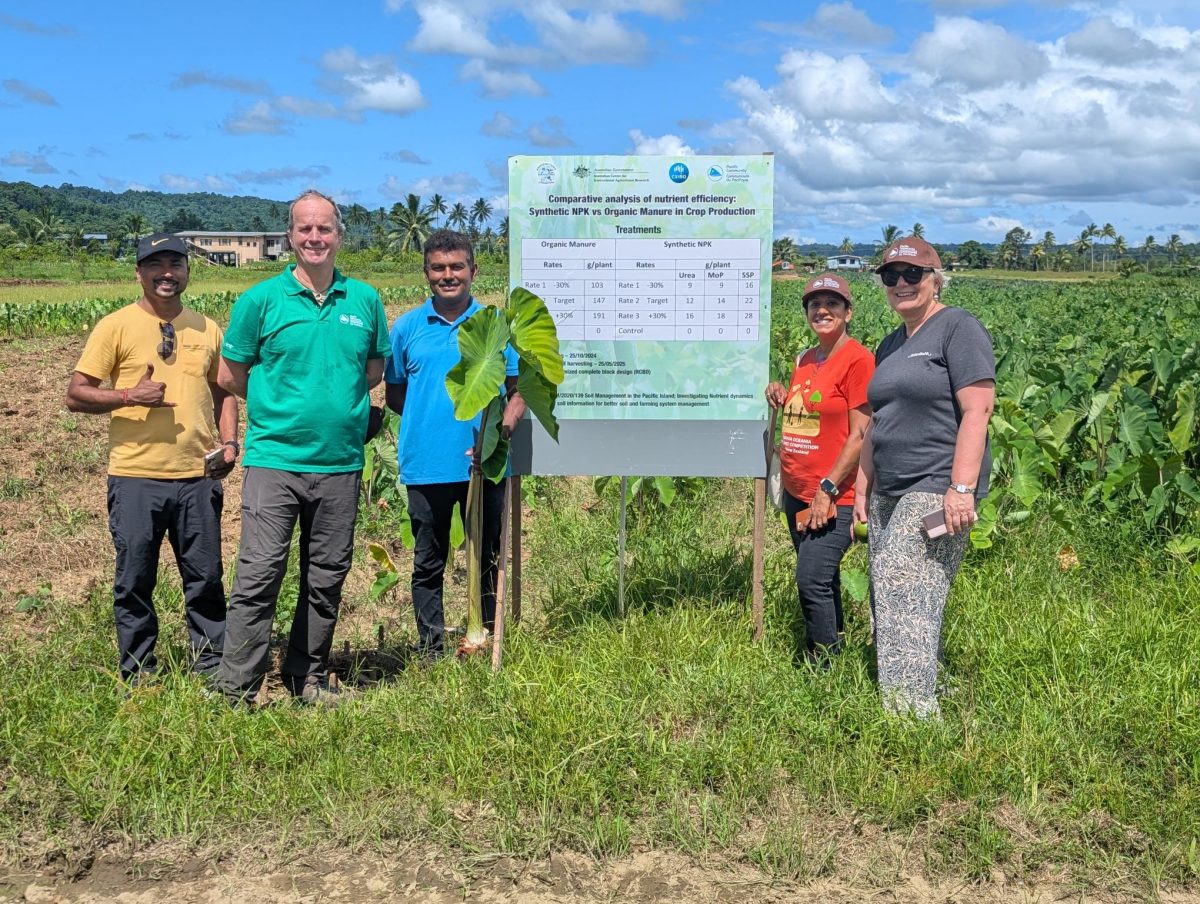
These trials are part of the Australian Centre for International Agricultural Research (ACIAR)-funded project “Soil Management in Pacific Islands – Investigating Nutrient Dynamics and the Utility of Soil Information for Better Soil and Farming System Management”.
The project’s goal is to promote sustainable farming through development and use of appropriate farming systems, knowledgeable landholders and institutions, and sound biophysical management that maintains soil fertility and organic carbon.
Taro, the region’s staple crop
Taro, a member of the Araceae family, is a traditional food crop grown across the Pacific Islands. The entire plant is harvested, with corms, petioles, and leaves removed from the field for market or local consumption. This practice, combined with tillage and poor nutrient management, depletes soil organic carbon and fertility.
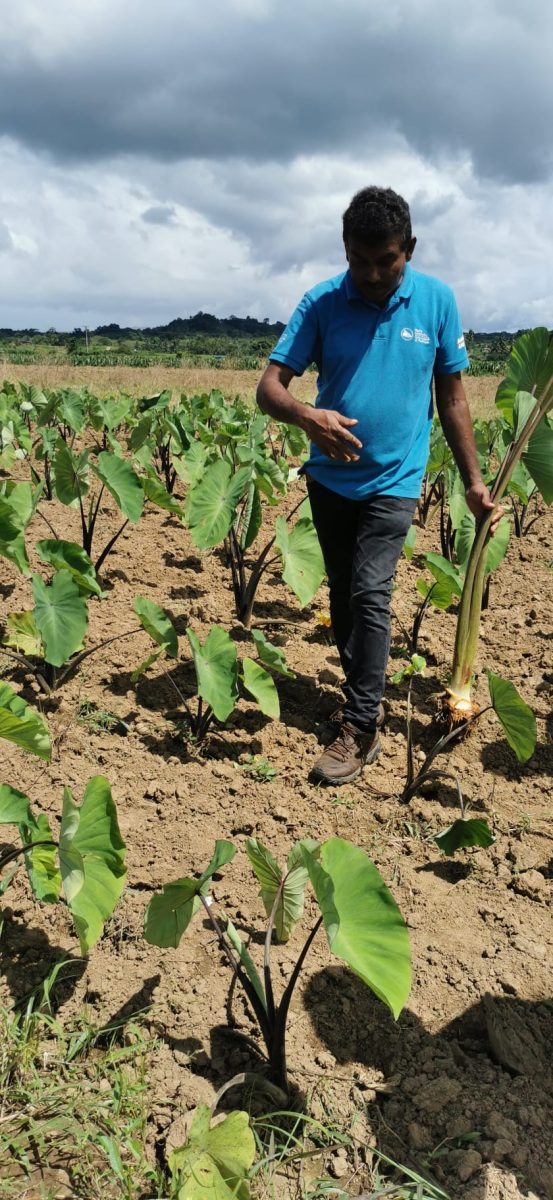
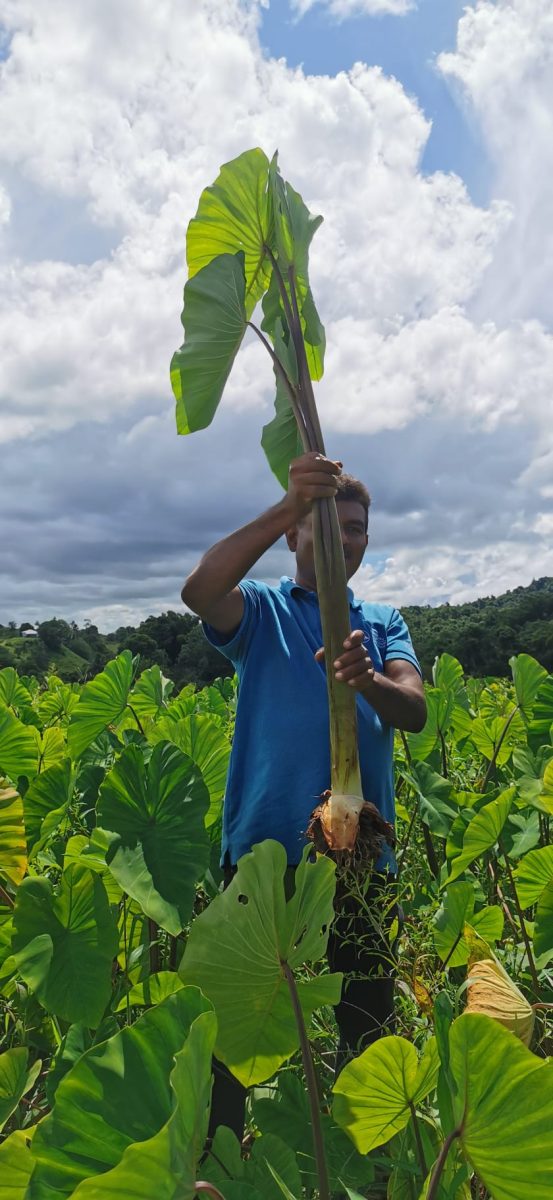
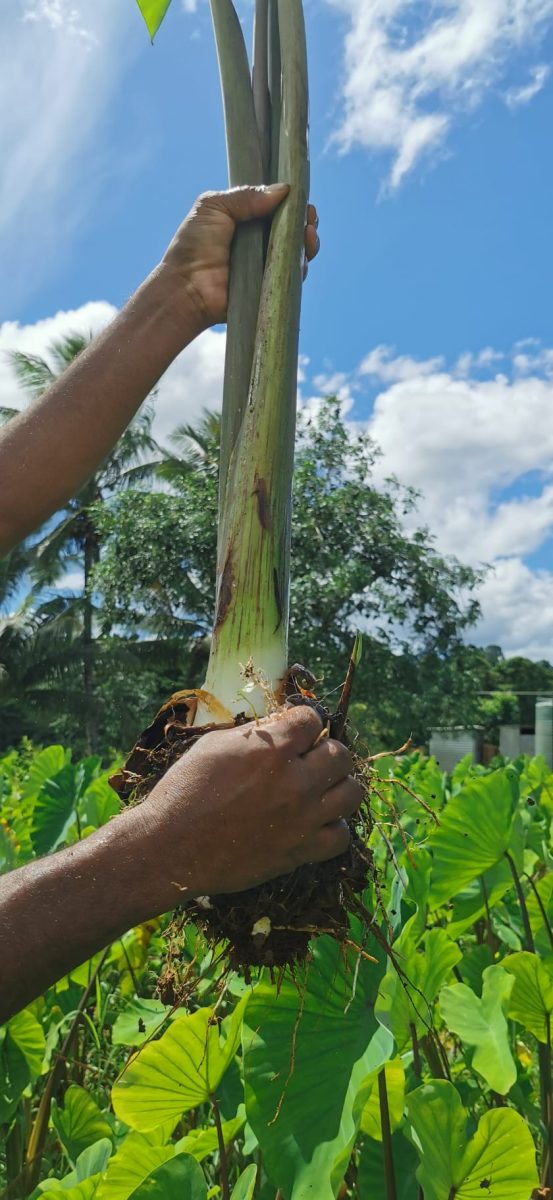
With the region facing soil organic carbon (SOC) depletion due to intensified agriculture and reduced fallow periods, researchers hope to identify viable solutions to rebuild SOC and support resilient food systems.
Improving national soil data
In addition to fieldwork, the workshop hosted collaborative sessions with key stakeholders—from government ministries to academic institutions—who collectively prioritised two research areas:
- the impact of land use change on SOC
- the need for robust SOC change measurement tools.
Efforts are now underway to establish national soil baselines and strengthen Fiji’s lab and data capabilities.
The group emphasised creating baselines and spatially referenced soil data tailored to Fiji’s unique agricultural systems. This will also support ongoing work by PhD student Abhi Prasad, who is studying soil biodiversity parameters such as bacteria and fungi.
With a strong focus on capacity building, this project reinforces the Pacific region’s commitment to soil health, biodiversity, and climate-smart farming.
Gallery
